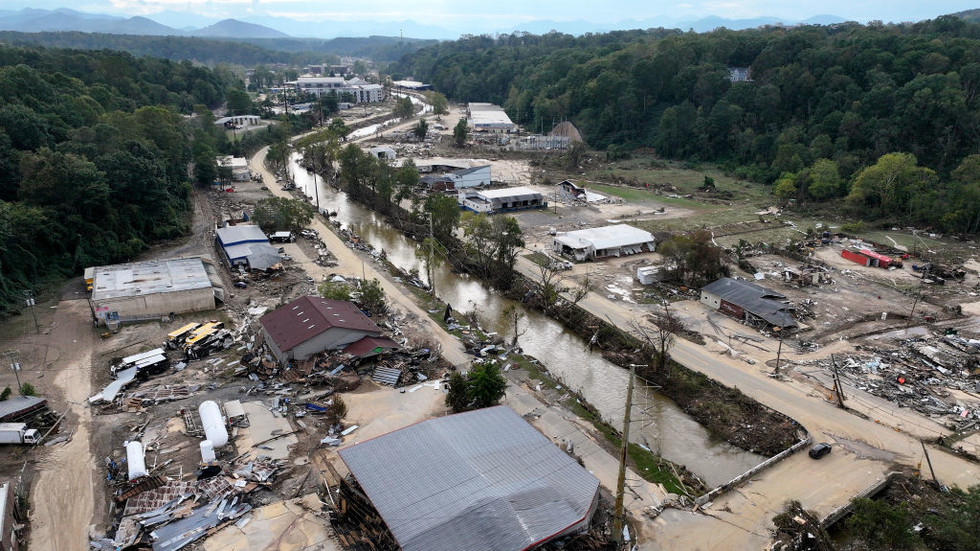In a controversial turn of events surrounding Hurricane Helene’s aftermath, SpaceX CEO Elon Musk has leveled serious allegations against the Biden administration, claiming it has been “actively blocking” the distribution of essential Starlink internet terminals to devastated regions in North Carolina. His accusations come in the wake of the hurricane’s catastrophic impact, which resulted in over 225 deaths and left many others unaccounted for. The storm significantly ravaged areas in Georgia and western North Carolina, where infrastructure damage has left tens of thousands without basic essentials such as water, power, and communication. While former President Donald Trump stated he was in touch with Musk about delivering aid, the federal government has refuted Musk’s claims as unfounded.
Following the hurricane, Musk took to his platform, X, to express his frustration. He accused the Federal Emergency Management Agency (FEMA) of not only failing to provide adequate assistance but also hindering relief efforts by confiscating Starlink terminals meant for the affected individuals. According to Musk, a SpaceX engineer reported that FEMA was regulating airspace to obstruct private helicopters aiming to deliver much-needed supplies. This claim added to the mounting tension around the agency’s role in disaster management and the distribution of resources during crises. Transportation Secretary Pete Buttigieg countered Musk’s assertions, insisting that the FAA does not prohibit legitimate rescue operations, indicating the complexity of the situation.
By late Friday, there seemed to be a resolution to the developing issue, as Musk acknowledged Buttigieg’s involvement in facilitating the delivery of aid flights. This incident raised further questions about the efficiency of government response and resources allocated for disaster relief. The overarching narrative had morphed into a political battleground, where Republican leaders have accused the Biden administration of deliberately underfunding disaster aid in areas that predominantly supported Trump in previous elections. These accusations underscored the divisive nature of U.S. politics, especially when intertwined with disaster management.
Trump, while visiting affected regions, referred to an alleged misallocation of funds insinuating that significant resources intended for disaster relief were diverted to support undocumented immigrants. This narrative gained traction in conservative circles, particularly as the Biden administration disclosed that FEMA had recently allocated substantial sums for housing assistance to illegal immigrants. However, this expenditure was clarified as coming from a different budget category than disaster relief, highlighting the complexities of federal funding and resource management in emergencies.
In a striking contrast, FEMA reported spending significantly less on hurricane relief compared to the funds directed toward housing illegal immigrants, which some argued reflects an imbalance in priorities. The agency’s budget allocations and the political optics surrounding them have contributed to a tense atmosphere in the wake of the hurricane. As relief efforts continue, the agency’s capacities and decisions are under scrutiny by both politicians and the public alike, with calls for a transparent and equitable approach to disaster response.
As the nation grapples with these pressing issues, it becomes increasingly apparent that the intersection of politics, disaster relief, and public perception complicates the response to emergencies. The clash between Musk and federal officials illustrates not just a struggle for resources in a time of crisis but also reflects broader national conversations about governance and accountability. The unfolding situation serves as a reminder of the intricate dynamics at play in navigating disaster response amidst political discord, as communities in North Carolina and beyond continue to seek the assistance they urgently need.

